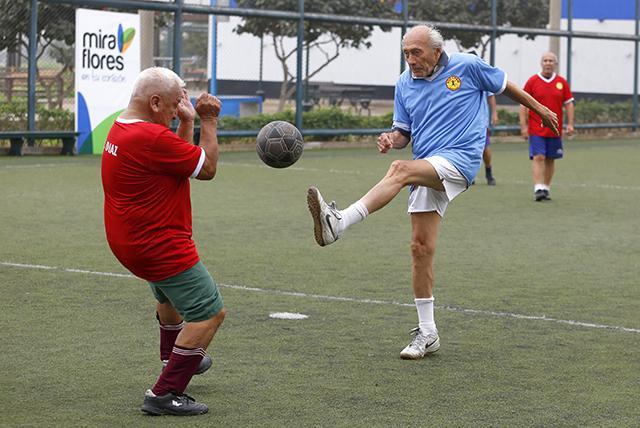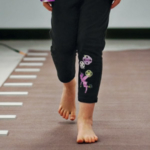Exercise as effective as surgery for middle aged patients with knee damage
Study raises questions over widespread practice without supporting evidence.
Exercise therapy is as effective as surgery for middle aged patients with a common type of knee injury known as meniscal tear (damage to the rubbery discs that cushion the knee joint), finds a study in The BMJ this week.

Evoke™ unloading knee brace
From the BMJ in Science Daily 20 July 2016
The researchers suggest that supervised exercise therapy should be considered as a treatment option for middle aged patients with this type of knee damage.
Every year, an estimated two million people worldwide undergo knee arthroscopy (keyhole surgery to relieve pain and improve movement) at a cost of several billion US dollars. Yet current evidence suggests that arthroscopic knee surgery offers little benefit for most patients.
How did this situation – widespread practice without supporting evidence, of even moderate quality – come about? …ask two experts in a linked editorial. “Essentially, good evidence has been widely ignored,” say Teppo Järvinen at the University of Helsinki and Gordon Guyatt at McMaster University in Canada.
So researchers based in Denmark and Norway carried out a randomised controlled trial to compare exercise therapy alone with arthroscopic surgery alone in middle aged patients with degenerative meniscal tears.
A randomised controlled trial is one of the best ways for determining whether an intervention actually has the desired effect. The study raises questions over widespread practice without supporting evidence.
They identified 140 adults (average age 50 years) with degenerative meniscal tears, verified by MRI scan, at two public hospitals and two physiotherapy clinics in Norway. Almost all (96%) participants had no definitive x-ray evidence of osteoarthritis.
Half of the patients received a supervised exercise programme over 12 weeks (2-3 sessions each week) and half received arthroscopic surgery followed by simple daily exercises to perform at home.
Thigh muscle strength was assessed at three months and patient reported knee function was recorded at two years.
No clinically relevant difference was found between the two groups for outcomes such as pain, function in sport and recreation, and knee related quality of life. At three months, muscle strength had improved in the exercise group.
No serious adverse events occurred in either group during the two-year follow-up. Thirteen (19%) of participants in the exercise group crossed over to surgery during the follow-up period, with no additional benefit.

Reviewers found that both exercise and arthroscopic surgery had a small effect on reducing knee pain, but that the benefit from the surgery disappeared after six months. Mariana Bazo REUTERS
“Supervised exercise therapy showed positive effects over surgery in improving thigh muscle strength, at least in the short term,” say the authors. “Our results should encourage clinicians and middle aged patients with degenerative meniscal tear and no radiographic evidence of osteoarthritis to consider supervised structured exercise therapy as a treatment option.”
How did this situation – widespread practice without supporting evidence, of even moderate quality – come about? …ask two experts in a linked editorial. “Essentially, good evidence has been widely ignored,” say Teppo Järvinen at the University of Helsinki and Gordon Guyatt at McMaster University in Canada.
“In a world of increasing awareness of constrained resources and epidemic medical waste, what we should not do is allow the orthopaedic community, hospital administrators, healthcare providers, and funders to ignore the results of rigorous trials and continue widespread use of procedures for which there has never been compelling evidence,” they conclude.
Source Science Daily
bmj.i3740.full_
Exercise therapy versus arthroscopic partial meniscectomy for degenerative meniscal tear in middle aged patients: randomised controlled trial with two year follow-up, Nina Jullum Kise orthopaedic surgeon, May Arna Risberg physiotherapist and professor, Silje Stensrud physiotherapist, Jonas Ranstam independent statistician and professor, Lars Engebretsen orthopaedic surgeon and professor, Ewa M Roos physiotherapist and professor. BMJ 2016;354:i3740. doi.org/10.1136/bmj.i3740. Published 20 July 2016
nihms477331
Surgery versus Physical Therapy for a Meniscal Tear and Osteoarthritis, Jeffrey N Katz MD, Robert H Brophy MD, Christine E Chaisson MPH, Leigh de Chaves, PT, OCS, Brian J Cole MD MBA, Diane L Dahm MD, Laurel A Donnell-Fink MPH, Ali Guermazi MD PhD, Amanda K Haas MA, Morgan H Jones MD MPH, Bruce A Levy MD, Lisa A Mandl MD MPH, Scott D Martin MD, Robert G Marx MD, Anthony Miniaci MD, Matthew J Matava MD, Joseph Palmisano MPH, Emily K Reinke PhD, Brian E Richardson PT MS SCS CSCS, Benjamin N Rome BA, Clare E Safran-Norton PT PhD OCS, Debra J Skoniecki MSN ANP, Daniel H Solomon MD MPH, Matthew V Smith MD, Kurt P Spindler MD, Michael J Stuart MD, John Wright MD, Rick W Wright MD, and Elena Losina PhD. N Engl J Med. 2013 May 2; 368(18): 1675–1684. doi: 10.1056/NEJMoa1301408 Published online 2013 Mar 18.
Arthroscopic surgery for knee pain, A highly questionable practice without supporting evidence of even moderate quality, Editorial by Teppo L N Järvinen, professor, Gordon H Guyatt, distinguished professor. BMJ 2016;354:i3934 doi: 10.1136/bmj.i3934 Published 20 July 2016
The effectiveness of an exercise programme on dynamic balance in patients with medial knee osteoarthritis: A pilot study, Al-Khlaifat L, Herrington LC, Tyson SF, Hammond A, Jones RK. Knee. 2016 Jun 14. pii: S0968-0160(16)30049-7. doi: 10.1016/j.knee.2016.05.006. [Epub ahead of print]
Also see
Is Surgery Always Needed for Meniscal Tears of the Knee? in Pantagraph
Common surgery for knee pain has no long-term benefits, only risks, study finds in MinnPost
Public Health: The right to know than an operation is ‘Next to Useless’ in The New York Times






